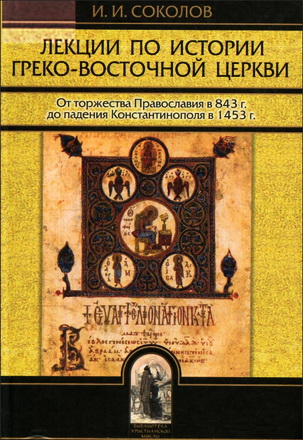
Cambridge Companions - Modern Theologians and Thinkers
From the outside, Luther’s life passed by simply and steadily. With few exceptions, his whole life took place within the territories of Thuringia and Saxony, mostly in Wittenberg, the electoral capital at the Elbe river, and its surroundings. Only a few journeys led Luther beyond this small sphere of life: on behalf of his order to Rome (1510/11), to Cologne (1512) and Heidelberg(1518); later on behalf of a Reformation consensus to Marburg (1529), and also on his own behalf to Augsburg (1518) and Worms (1521). Equally, with regard to his profession, Luther’s was a remarkable and steady character. From entering the monastery through to his last moment, Luther always remained a man of the word: as a preacher, professor and writer.
During Luther’ s life the horizon of world history and humanities was in the process of becoming radically changed. The following names must stand for many others representing this era: the two emperors Maximilian I and Charles V, the popes Leo X, Clemens VII and Paul III (Council of Trent), as well as the names of such artists and scientists as Raphael, Michelangelo, Durer, Copernicus and Paracelsus. However, as far as Luther is concerned these changes could be deceptive because his childhood and youth had not been touched by the spirit of humanism or of the Renaissance. Limited to the provincial surroundings of his hometown, Luther grew up as a typical child of the late Middle Ages – just like thousands of other boys around him.
On November 10, 1483 Luther was born as the eldest of probably nine sisters and brothers at Eisleben in what was then the county of Mansfeld. The next morning he was baptized and named Martin after the saint of that day. Coming from a Thuringian family of farmers, his father Hans Luder, not being entitled to inherit, sought his luck in one of the most advanced business opportunities: the copper mines of Mansfeld. During the course of his life he was able to gain a well-respected economic and social position through enormous hard work and thrift. We know only a very little about his wife Margarethe, Luther’s mother. She came from a family named Lindemann, resident in Eisenach. As the wife of a venturesome entrepreneur and as mother of her large family, she had to work hard throughout her whole lifetime. Martin Luther was well aware of the fact that, as he put it, the bitter sweat of his parents had made it possible for him to go to the university.
The Cambridge Companion to Martin Luther
Edited by Donald K. McKim, 2003
Part I - Luther’s life and context
- 1 - Luther’s life. Albrecht Beutel
- 2 - Luther’s Wittenberg. Helmar Junghans
Part II - Luther’s work
- 3 - Luther’s writings. Timothy F. Lull
- 4 - Luther as Bible translator. Eric W. Gritsch
- 5 - Luther as an interpreter of Holy Scripture. Oswald Bayer
- 6 - Luther’s theology. Markus Wriedt
- 7 - Luther’s moral theology. Bernd Wannenwetsch
- 8 - Luther as preacher of the Word of God. Fred W. Meuser
- 9 - Luther’s spiritual journey. Jane E. Strohl
- 10 - Luther’s struggle with social-ethical issues. Carter Lindberg
- 11 - Luther’s political encounters. David M. Whitford
- 12 - Luther’s polemical controversies. Mark U. Edwards, JR.
Part III - After Luther
- 13 - Luther’s function in an age of confessionalization. Robert Kolb
- 14 - The legacy of Martin Luther. Hans J. Hillerbrand
- 15 - Approaching Luther. James Arne Nestingen
Part IV - Luther today
- 16 - Luther and modern church history. James M. Kittelson
- 17 - Luther’s contemporary theological significance. Robert W. Jenson
- 18 - Luther in the worldwide church today. Günther Gassmann
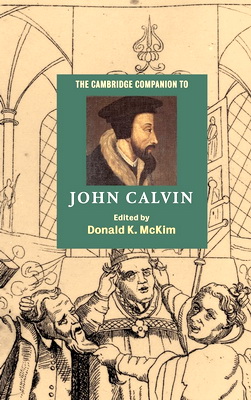
The Cambridge Companion to John Calvin
Edited by Donald K. McKim, 2004
Part I - Calvin’s Life and Context
- 1 - Calvin’s life. Alexandre Ganoczy
- 2 - Calvin’s Geneva. William G. Naphy
Part II - Calvin’s Work
- 3 - Calvin’s writings. Wulfert Greef
- 4 - Calvin as a biblical interpreter. John L. Thompson
- 5 - Calvin’s theology. I. John Hesselink
- 6 - Calvin’s ethics. Guenther H. Haas
- 7 - Calvin’s preaching. Dawn Devries
- 8 - Calvin on piety. Joel R. Beeke
- 9 - Calvin and social-ethical issues. Jeannine E. Olson
- 10 - Calvin and political issues. William R. Stevenson, Jr.
- 11 - Calvin’s controversies. Richard C. Gamble
Part III - After Calvin
- 12 - The spread of Calvin’s thought. Andrew Pettegree
- 13 - Calvin and Calvinism. Carl R. Trueman
- 14 - Calvin’s heritage. R. Ward Holder
Part IV - Calvin Today
- 15 - Calvin’s role in church history. David F. Wright
- 16 - The place of Calvin in Christian theology. B. A. Gerrish
- 17 - Calvin in ecumenical context. Jane Dempsey Douglass
- 18 - Calvin in context: current resources. Karin Maag, Paul Fields
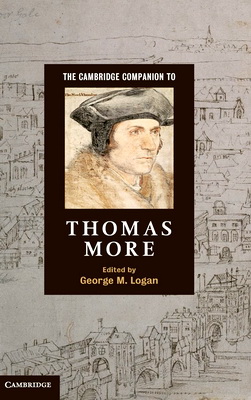
The Cambridge Companion to Thomas More
Edited by George M. Logan, 2011
Part I. Life, times and work
- 1. The making of a London citizen. Caroline M. Barron
- 2. Thomas More as humanist. James McConica
- 3. More's rhetoric. Elizabeth McCutcheon
- 4. More's public life. Cathy Curtis
- 5. Thomas More and the heretics: statesman or fanatic? Richard Rex
- 6. The last years. Peter Marshall
Part II. Five major works
- 7. Reading Utopia. Dominic Baker-Smith
- 8. More on tyranny: The History of King Richard the Third. George M. Logan
- 9. ‘The comen knowen multytude of crysten men’: A Dialogue Concerning Heresies and the defence of Christendom. Eamon Duffy
- 10. ‘In stede of harme inestimable good’: A Dialogue of Comfort against Tribulation. Andrew W. Taylor
- 11. The lessons of Gethsemane: De Tristitia Christi. Katherine Gardiner Rodgers
Part III. Reception
- 12. Afterlives. Anne Lake Prescott
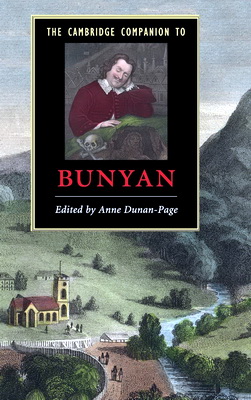
The Cambridge Companion to Bunyan
Edited by Anne Dunan-Page, 2010
- Introduction. Anne Dunan-Page
Part I. John Bunyan in his seventeenth-century context
- 1. John Bunyan’s literary life. N. H. Keeble
- 2. John Bunyan and Restoration literature. Nigel Smith
- 3. John Bunyan and the Bible. W. R. Owens
- 4. John Bunyan and the goodwives of Bedford: a psychoanalytic approach. Vera J. Camden
Part II. John Bunyan’s major works
- 5. Grace Abounding to the Chief of Sinners: John Bunyan and spiritual autobiography. Michael Davies
- 6. The Pilgrim’s Progress and the line of allegory. Roger Pooley
- 7. Bunyan and the early novel: The Life and Death of Mr Badman. Stuart Sim
- 8. Militant religion and politics in The Holy War. David Walker
- 9. A Book for Boys and Girls: Or, Country Rhimes for Children: Bunyan and literature for children. Shannon Murray
Part III. Readership and reception
- 10. Posthumous Bunyan: early lives and the development of the canon. Anne Dunan-Page
- 11. The Victorians and Bunyan’s legacy. Emma Mason
- 12. Bunyan: colonial, postcolonial. Isabel Hofmeyr
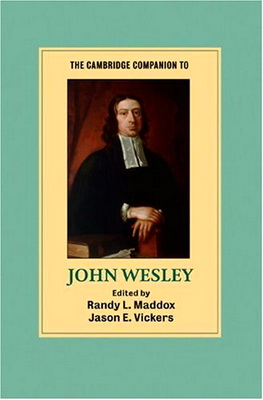
The Cambridge Companion to John Wesley
Edited by Randy L. Maddox and Jason E. Vickers, 2009
- Introduction. Randy L. Maddox, Jason E. Vickers
Part I - Wesley’s context
- 1 - The long eighteenth century. Jeremy Gregory
Part II - Wesley’s life
- 2 - Wesley’s life and ministry. Kenneth J. Collins
- 3 - Wesley in context. David N. Hempton
Part III - Wesley’s work
- 4 - Wesley as revivalist/renewal leader. Charles I. Wallace Jr.
- 5 - Wesley as preacher. William J. Abraham
- 6 - Wesley as biblical interpreter. Robert W. Wall
- 7 - John Wesley as diarist and correspondent. Ted A. Campbell
- 8 - John Wesley as editor and publisher. Isabel Rivers
- 9 - Wesley’s engagement with the natural sciences. Randy L. Maddox
- 10 - Wesley as adviser on health and healing. Deborah Madden
- 11 - Wesley’s theological emphases. Jason E. Vickers
- 12 - Happiness, holiness, and the moral life in John Wesley. Rebekah L. Miles
- 13 - Wesley’s emphases on worship and the means of grace. Karen B. Westerfield Tucker
Part IV - Wesley’s legacy
- 14 - Spread of Wesleyan Methodism. Kenneth Cracknell
- 15 - The holiness/pentecostal/charismatic extension of the Wesleyan tradition. Randall J. Stephens
- 16 - The African American wing of the Wesleyan tradition. Dennis C. Dickerson
- 17 - Current debates over Wesley’s legacy among his progeny. Sarah H. Lancaster
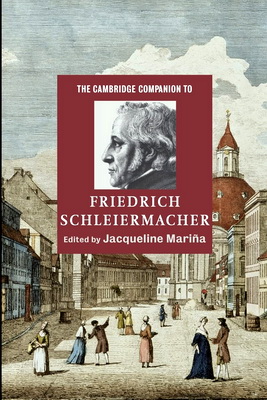
The Cambridge Companion to Friedrich Schleiermacher
Edited by Jacqueline Marina, 2005
- Introduction. Jacqueline Mariña
Part I - Schleiermacher as Philosopher
- 1 - Metaphysical foundations: a look at Schleiermacher’s Dialectic. Manfred Frank
- 2 - Faith and religious knowledge. Robert Merrihew Adams
- 3 - Schleiermacher’s ethics. Frederick C. Beiser
- 4 - The philosophical significance of Schleiermacher’s hermeneutics. Andrew Bowie
- 5 - The art of interpreting Plato. Julia A. Lamm
Part II - Schleiermacher as Theologian
- 6 - Shaping an academic discipline: the Brief Outline on the Study of Theology. Richard Crouter
- 7 - Sin and redemption. Walter E. Wyman, Jr.
- 8 - Christology and anthropology in Friedrich Schleiermacher. Jacqueline Mariña
- 9 - Schleiermacher’s understanding of God as triune. Francis Schüssler Fiorenza
- 10 - Providence and grace: Schleiermacher on justification and election. Dawn DeVries, B. A. Gerrish
- 11 - Schleiermacher’s Christian Ethics. Eilert Herms
- 12 - Schleiermacher’s exegetical theology and the New Testament. Christine Helmer
Part III - Culture, Society, and Religion
- 13 - Culture, arts, and religion. David E. Klemm
- 14 - Schleiermacher and the state. Theodore Vial
- 15 - Schleiermacher, feminism, and liberation theologies: a key. Thandeka
- 16 - Schleiermacher yesterday, today, and tomorrow. Terrence N. Tice
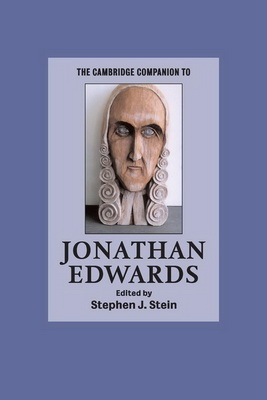
The Cambridge Companion to Jonathan Edwards
Edited by Stephen J. Stein, 2007
- Introduction. STEPHEN J. STEIN
Part I. Edwards’s life and context
- 1. Biography. GEORGE M. MARSDEN
- 2. Personal writings. KENNETH P. MINKEMA
- 3. The New England background. DAVID D. HALL
- 4. The age of Enlightenment. AVIHU ZAKAI
Part II. Edwards’s roles and achievements
- 5. Edwards as preacher. WILSON H. KIMNACH
- 6. Edwards as revivalist. HARRY S. STOUT
- 7. Edwards as theologian. E. BROOKS HOLIFIELD
- 8. Edwards as philosopher. STEPHEN H. DANIEL
- 9. Edwards as biblical exegete. STEPHEN J. STEIN
- 10. Edwards as missionary. RACHEL M. WHEELER
Part III. Edwards’s legacy and reputation
- 11. Evangelical tradition in America. DOUGLAS A. SWEENEY
- 12. The reputation of Edwards abroad. D. W. BEBBINGTON
- 13. Edwards and American literature. PHILIP F. GURA
- 14. Edwards in "American culture". M. X. LESSER
- 15. Edwards’s intellectual legacy. STEPHEN D. CROCCO
- 16. Edwards and social issues. AVA CHAMBERLAIN
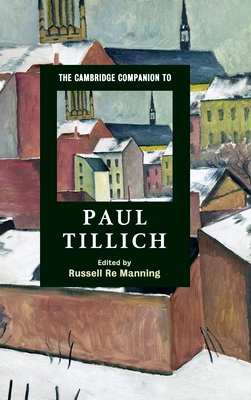
The Cambridge Companion to Paul Tillich
Edited by Russell Re Manning, 2009
Part I - Standing within the theological circle
- 1 - Tillich’s life and works. Werner Schübler
- 2 - Tillich as systematic theologian. Oswald Bayer
- 3 - Tillich on God. Martin Leiner
- 4 - Tillich’s Christology. Anne Marie Reijnen
- 5 - Tillich’s theology of the concrete spirit. Frederick J. Parrella
- 6 - Faith (and religion). Mary Ann Stenger
- 7 - ‘First, read my sermons’ Tillich as preacher. Erdmann Sturm
Part II - Theology of culture
- 8 - Tillich’s analysis of the spiritual situation of his time(s). Jean Richard
- 9 - Theology of culture and its future. William Schweiker
- 10 - Tillich’s theology of art. Russell Re Manning
- 11 - Tillich’s philosophy. Christian Danz
- 12 - Tillich’s ethics between politics and ontology. Mark Lewis Taylor
- 13 - On the boundary of utopia and politics. Ronald H. Stone
Part III - Tillich in dialogue
- 14 - Tillich in dialogue with natural science. John F. Haught
- 15 - Tillich in dialogue with psychology. John Dourley
- 16 - Tillich in dialogue with Japanese Buddhism: a paradigmatic illustration of his approach to inter-religious conversation. Marc Boss
- 17 - Tillich and feminism. Rachel Sophia Baard
- 18 - Tillich and the postmodern. John Thatamanil
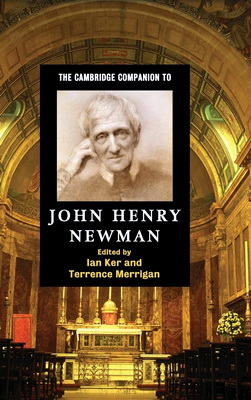
The Cambridge Companion to John Henry Newman
Edited by Ian Ker and Terrence Merrigan, 2009
- 1. Life and writings. SHERIDAN GILLEY
- 2. The Church Fathers. BRIAN E. DALEY
- 3. Revelation. TERRENCE MERRIGAN
- 4. Faith. THOMAS J . NORRIS
- 5. Justification. THOMAS L. SHERIDAN
- 6. Development of doctrine. GERARD H. MCCARREN
- 7. The Church as communion. IAN KER
- 8. Infallibility. FRANCIS A. SULLIVAN
- 9. Authority in the Church. AVERY DULLES
- 10. Conscience. GERARD J . HUGHES
- 11. Theology in the university. GERARD LOUGHLIN
- 12. Preaching. DENIS ROBINSON
- 13. Newman in retrospect. DAVID B. BURRELL
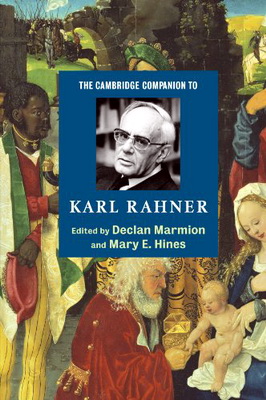
The Cambridge Companion to Karl Rahner
Edited by Declan Marmion and Mary E. Hines, 2005
- Introduction. Declan Marmion, Mary E. Hines
Part I - Spiritual, Philosophical, and Theological Roots
- 1 - Theology and spirituality. Harvey D. Egan
- 2 - Rahner’s transcendental project. Thomas Sheehan
- 3 - Experience of grace. Stephen J. Duffy
Part II - Theological Investigations
- 4 - Method in theology. Francis Schüssler Fiorenza
- 5 - Revelation and faith. Daniel Donovan
- 6 – Trinity. David Coffey
- 7 – Christology. Roman A. Siebenrock
- 8 - Ecclesiology and ecumenism. Richard Lennan
- 9 - Ministry and worship. Jerry T. Farmer
- 10 – Ethics. Brian Linnane
- 11 – Eschatology. Peter C. Phan
Part III - Conversations Ongoing
- 12 - Rahner amid modernity and post-modernity. Michael Purcell
- 13 - Rahner’s reception in twentieth century Protestant theology. Nicholas Adams
- 14 - Karl Rahner: toward a theological aesthetics. Gesa Elsbeth Thiessen
- 15 - Rahner and religious diversity. Jeannine Hill Fletcher
- 16 - Political and liberation theologies. Gaspar Martinez
- 17 - Feminist theologies. Nancy A. Dallavalle
Part IV - Retrospect and Prospect
- 18 - Has Rahnerian theology a future? Philip Endean
- 19 - Experiences of a Catholic theologian. Karl Rahner
Appendix: a guide for students. Declan Marmion, Mary E. Hines
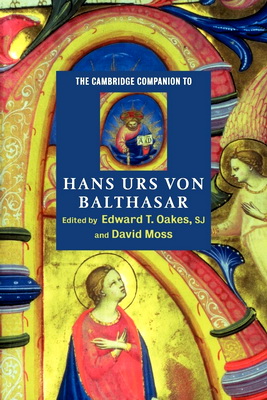
The Cambridge Companion to Hans Urs von Balthasar
Edited by Edward T. Oakes and David Moss, 2004
- 1 – Introduction. David Moss, Edward T. Oakes
Part I - Theological topics
- 2 – Revelation. Larry Chapp
- 3 – Christology. Mark A. McIntosh
- 4 - Balthasar and the Trinity. Rowan Williams
- 5 - For the life of the world: Hans Urs von Balthasar on the Church as Eucharist. Nicholas Healy, David L. Schindler
- 6 - Balthasar and the figure of Mary. Lucy Gardner
- 7 - The saints. David Moss
- 8 - One sex or two? Balthasar’s theology of the sexes. Corinne Crammer
- 9 – Eschatology. Geoffrey Wainwright
Part II - The trilogy
- 10 - The theological aesthetics. Oliver Davies
- 11 - The theo-drama. Ben Quash
- 12 - The theo-logic. Aidan Nichols
Part III - Disciplines
- 13 - Balthasar’s biblical hermeneutics. W. T. Dickens
- 14 - Balthasar’s reading of the Church Fathers. Brian E. Daley
- 15 - Balthasar’s literary criticism. Ed Block, JR
- 16 - Balthasar and metaphysics. Fergus Kerr
Part IV - Contemporary encounters
- 17 - Balthasar and Karl Barth. John Webster
- 18 - Balthasar and Karl Rahner. Karen Kilby
- 19 - Envoi: the future of Balthasarian theology. Edward T. Oakes
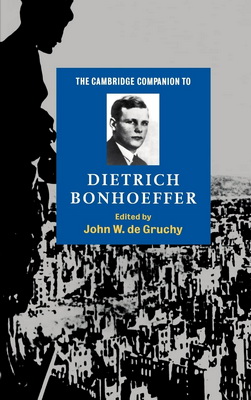
The Cambridge Companion to Dietrich Bonhoeffer
Edited by John W. De Gruchy, 2005
Part one: Bonhoeffer’s life and legacy
- 1. Bonhoeffer’s Germany: the political context. JOHN A. MOSES
- 2. The life of Dietrich Bonhoeffer. F. BURTON NELSON
- 3. The formation of Bonhoeffer’s theology. MARTIN RUMSCHEIDT
- 4. Bonhoeffer’s literary legacy. WAYNE WHITSON FLOYD, JR
- 5. The reception of Bonhoeffer’s theology. JOHN W. DE GRUCHY
Part two: Major themes in Bonhoeffer’s theology
- 6. Human sociality and Christian community. CLIFFORD GREEN
- 7. ‘Who is Jesus Christ, for us, today?’ ANDREAS PANGRITZ
- 8. Ecumenical witness for peace. Keith Clements
- 9. Costly discipleship. HADDON WILLMER
- 10. Church, state and the ‘Jewish question’. RUTH ZERNER
- 11. The ethics of responsible action. LARRY RASMUSSEN
- 12. Christianity in a world come of age. PETER SELBY
- 13. Prayer and action for justice: Bonhoeffer’s spirituality. GEFFREY B. KELLY
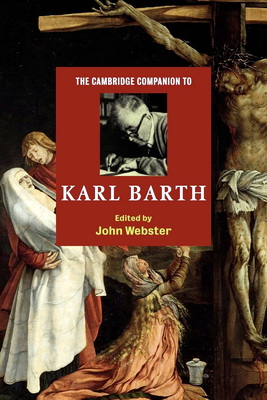
The Cambridge Companion to Karl Barth
Edited by John Webster, 2007
- 1. Introducing Barth. JOHN WEBSTER
- 2. Theology. CHRISTOPH SCHWÖBEL
- 3. Revelation. TREVOR HART
- 4. The Bible. FRANCIS WATSON
- 5. The Trinity. ALAN TORRANCE
- 6. Grace and being: the role of God’s gracious election in Karl Barth’s theological ontology. BRUCE MCCORMACK
- 7. Creation and providence. KATHRYN TANNER
- 8. Karl Barth’s Christology: its basic Chalcedonian character. GEORGE HUNSINGER
- 9. Salvation. COLIN GUNTON
- 10. The humanity of the human person in Karl Barth’s anthropology. WOLF KRÖTKE
- 11. The mediator of communion: Karl Barth’s doctrine of the Holy Spirit. GEORGE HUNSINGER
- 12. Christian community, baptism, and Lord’s Supper. JAMES J. BUCKLEY
- 13. Barth’s trinitarian ethic. NIGEL BIGGAR
- 14. Karl Barth and politics. WILLIAM WERPEHOWSKI
- 15. Religion and the religions. J. A. DI NOIA, O. P.
- 16. Barth and feminism. KATHERINE SONDEREGGER
- 17. Barth, modernity, and postmodernity. GRAHAM WARD
- 18. Karl Barth: a personal engagement. ALASDAIR I. C. HERON
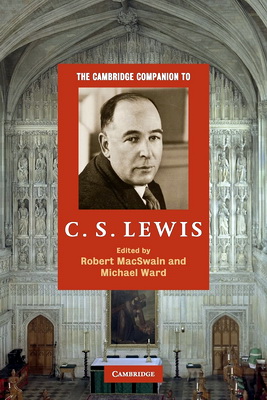
The Cambridge Companion to C. S. Lewis
Edited by Robert MacSwain and Michael Ward, 2010
- 1. Introduction. Robert MacSwain
Part I. Scholar
- 2. Literary critic. John V. Fleming
- 3. Literary theorist. Stephen Logan
- 4. Intellectual historian. Dennis Danielson
- 5. Classicist. Mark Edwards
Part II. Thinker
- 6. On scripture. Kevin J. Vanhoozer
- 7. On theology. Paul S. Fiddes
- 8. On naturalism. Charles Taliaferro
- 9. On moral knowledge. Gilbert Meilaender
- 10. On discernment. Joseph P. Cassidy
- 11. On love. Caroline J. Simon
- 12. On gender. Ann Loades
- 13. On power. Judith Wolfe
- 14. On violence. Stanley Hauerwas
- 15. On suffering. Michael Ward
Part III. Writer
- 16. The Pilgrim’s Regress and Surprised by Joy. David Jasper
- 17. The Ransom Trilogy. T.A. Shippey
- 18. The Great Divorce. Jerry L. Walls
- 19. The Chronicles of Narnia. Alan Jacobs
- 20. Till We Have Faces. Peter J. Schakel
- 21. Poet. Malcolm Guite
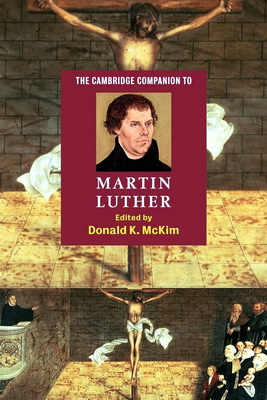
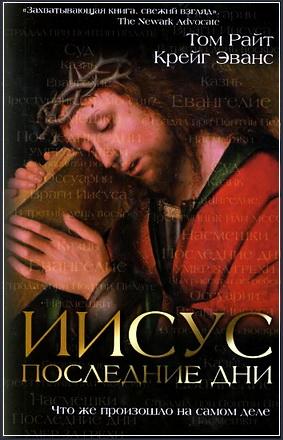
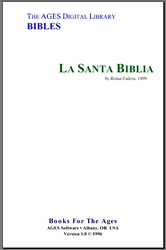
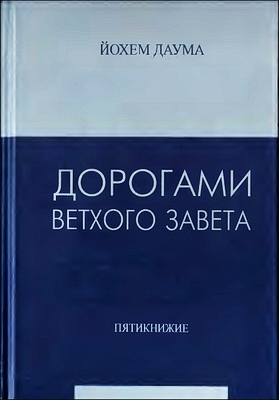
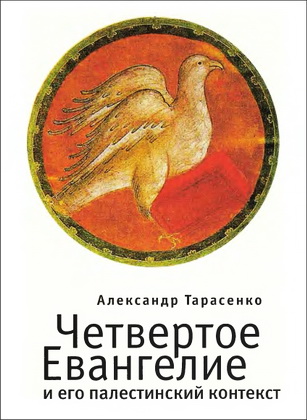
Комментарии (1 комментарий)
Спасибо, какой мощный залп теологии!